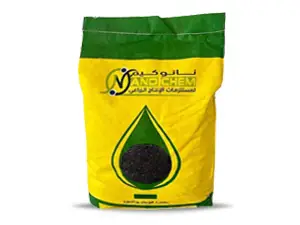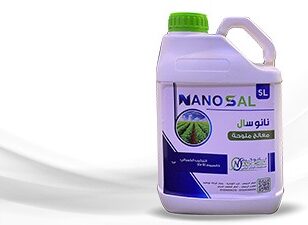introduction
Humic acid is a natural substance derived from the decomposition of organic matter, especially the remains of ancient plants and animals. This acid is considered one of the essential elements in improving soil quality and promoting plant growth. In this post, we will learn about the benefits of humic acid, ways to use it in agriculture, and its impact on the environment.
What is humic acid?
Definition and chemical composition
Humic acid is a complex compound of organic acids formed by the biological decomposition of plant and animal matter. This compound contains carbon, hydrogen, oxygen, nitrogen, and sulfur, and has a complex chemical structure that allows it to interact with minerals and nutrients in the soil.
Sources and Extraction
Humic acid can be found in soils rich in organic matter such as peat and brown coal. It is extracted from these sources through mechanical and chemical processes and then purified for use in agricultural applications.
Benefits of humic acid
soil improvement
Increase soil fertility: Humic acid helps increase the soil’s ability to retain water and nutrients.
Improves soil structure: Enhances soil aeration and reduces compaction, facilitating root absorption of water and nutrients
Increases soil biomass: Stimulates microbial activity, improving the biological balance in the soil.
Promote plant growth
Stimulates root growth: Helps stimulate root growth and increase its branching.
Increase crop productivity: It can increase crop productivity by 10% to 20%.
Improve crop quality: Increases the vitamin and mineral content of crops.
Protection from environmental stresses
Drought resistance: Increases the soil’s ability to retain water.
Salinity stress tolerance: Enhances the ability of plants to tolerate high soil salinity.
Ways to use humic acid in agriculture
Direct application to soil
Humic acid can be added directly to the soil in liquid or solid form to improve soil structure and increase its fertility.
Paper application
It can be used as a foliar spray to quickly provide nutrients to plants.
Drip irrigation
Humic acid is added to a drip irrigation system to be distributed directly to the root zone.
Environmental effects of humic acid
Environmental soil improvement
Humic acid reduces environmental pollution by trapping nutrients and minerals in the soil.
Reduce the use of chemical fertilizers
Enhances the efficiency of nutrient absorption, reducing reliance on chemical fertilizers.
Support organic farming
It is an essential component in organic farming, as it improves the health of plants and soil without the use of harmful chemicals.
Challenges and Considerations
Costs
The costs of producing and extracting humic acid can be high.
Quality variation
The quality of the products available in the market varies based on their sources and extraction methods.
Compatibility with crops and agricultural methods
The compatibility of humic acid with different types of crops and the agricultural methods used must be taken into account.
Conclusion
Humic acid is an effective natural solution for improving soil quality and promoting plant growth, contributing to sustainable and environmentally friendly agriculture. Despite the challenges, the environmental and economic benefits make humic acid a preferred choice for many farmers.
Eng
. Hajar Fawzy







